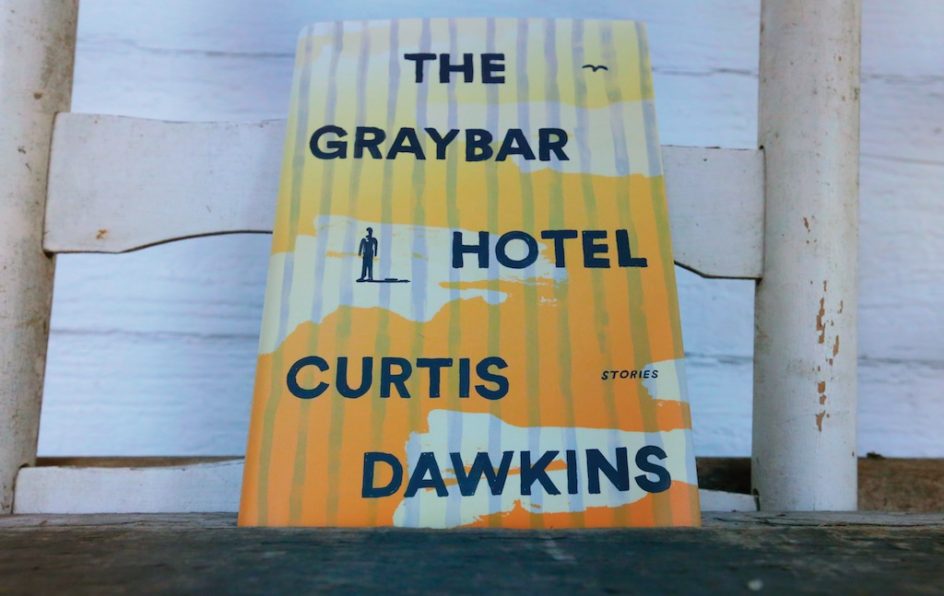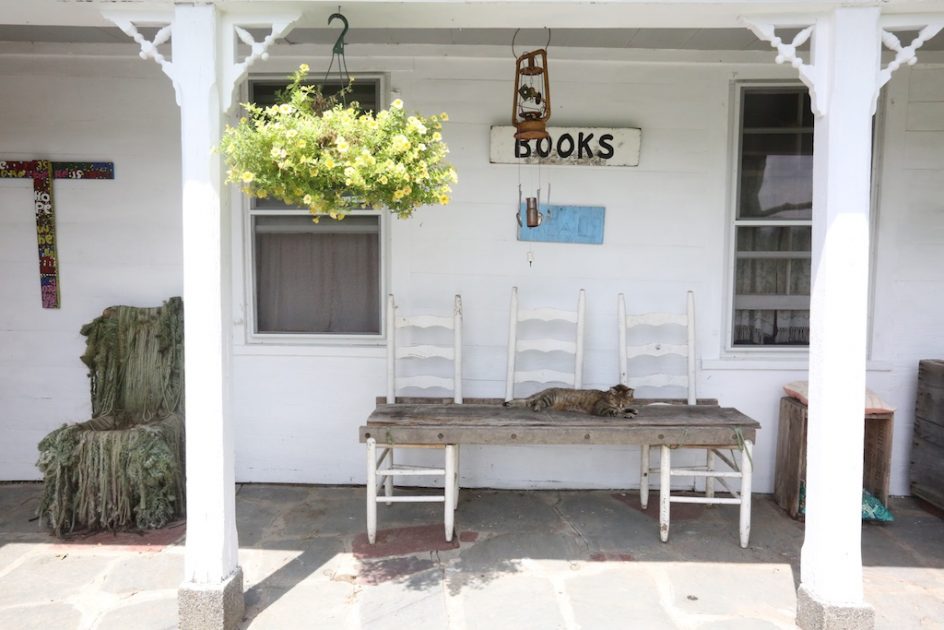
On Halloween, 2004, Curtis Dawkins, a graduate of the University of Michigan Fine Arts Fiction Writing program, smoked crack, dressed up as a gangster, shot and killed and man and went on a brutal rampage that took 24 police officers and a SWAT Team to bring to an end. He confessed to the killing, was sentenced to life in prison without parole.
This month, Scribner published his first book, “The Graybar Hotel,” a short story collection set in a prison. The book has gotten some wonderful reviews and a lot of expected controversy. This is an old and bitter issue, all the way back to Son Of Sam. Many laws have been passed in an attempt to forbid convicted murders from profiting in any way from their crimes through books.
All of these laws have been overturned by the courts.
Dawkins can write. He opens one chapter this way: “A ward at the Michigan Reformatory is a converted gym with a peaked roof and a dozen ceiling fans that whip warm air around the eight-man cubes like hot wind from the wings of desert vultures.”
Some distributors have refused to sell the book, many reviewers have refused to review it, many readers won’t buy it. The sale of books by killers is a touchy issue in publishing.
As of this writing, the book was no. 6,200 on Amazon.
I should say I have no reservations whatsoever about buying, reading or writing about “The Graybar Hotel”, people in prison are still human beings, and writers are writers, whatever they have done and wherever they are. If people are uncomfortable buying the book, they shouldn’t and no one should fault them. Life imprisonment with no hope of freedom is a dreadful and extreme punishment, Dawkins is hardly getting off with a slap on the wrist
As it happens, Dawkins is a gifted writer. His short story collection is powerful, touching, restrained. Instead of the usual prison writing about violence and rape and gangs and brutality, he focuses instead on the details of prison life, the quirks and habits of the inmates, the feeling of being there.
He makes no real apologia for what he is has done in the book itself, he does say in the acknowledgement (he does not describe the rampage, which prosecutors described as “horrific”) that “there’s often so much sadness and grief in my heart, it feels like I might explode.”
That feeling does show itself again and again in the beautifully crafted stories about life inside this hidden world.
America has the highest per capital prison population of any country on earth, and we almost never get a sense about what day-to-day life inside those walls is really like. As with most news, we only see the most sensational stories, the riots and brutality. These stories are subtle and surprising.
Dawkins stories are ethereal, almost mystical, like the tale of his cellmate Pepper Pie, who is given a dead man’s prison identification number and learns to become invisible and pass through walls, eventually escaping.
It is not possible to separate the author from the stories in the book, although the character is anonymous, it feels like Dawkins is trying to tell his story, trying to show us that he is a human being struggling to survive.
Kenneth Bowman, the murdered victim’s younger brother has said he wished that Dawkins, who is now 49, had received the death penalty. “I don’t think he should have the right to publish anything. He should be doing nothing in that prison but going through hell for the rest of his life.”
It felt to me as if that is precisely what Dawkins is, in fact, doing.
Dawkins said his writing became an escape. “A part of me realized, if I’m going to live through this, I’m going to have to find a purpose.” As a reader and admirer of this book, I am glad he chose to write it. I wish him peace and compassion, he surely has a heart, there is nothing fake or contrived about this book.
I honestly can’t imagine how the victim’s family feels, nor can I imagine how I would feel in their shoes. I can only say that I believe everyone has the right to tell their story and each of us can decide if we wish to read it or not. Fortunately, I am not God, I can’t join in the great American lust for judgment.
More than a decade later, Dawkins told the New York Times that he still cannot fathom what drove him to murder. “I don’t want to blame the drugs and say that it wasn’t me, because part of it was me, he said in an interview. “I’ve spent the years afterwards trying to understand the events of that night.”
For me, his time in prison was a gift because it made me think and feel. That is the ultimate measure of any book. Everyone inside of a prison is a victim, as are the people they harmed and sometimes killed. Empathy is not confined to the people we like and admire. Mercy is a measure of humanity, for the victims and for the criminals. It turns out that even monsters and killers can be human.
I looked up as much as I could find about the killing, on the night of the shooting Dawkins, already a drug addict, went to the north side of Kalamazoo, Michigan and smoked crack, which he later told police he had never tried before. At some point, he put on a Halloween costume, a 1920’s gangster suit purchased at Goodwill, and a menacing flesh color mask. He grabbed his gun and wandered down the block to an off-campus Halloween party.
Around 1:40 a.m., he approached a group of people in front of a house where there was a party. Someone asked him what the costume was supposed to be, Dawkins pulled out a gun and chased the man down the street. He ended up in front of the house of Thomas Bowman, a house painter who lived near the college campus. Bowman was on the porch, smoking a cigarette. Dawkins asked him for money. When Bowman refused and told him to leave, Dawkins shot him in the chest, and took a hostage inside of the house. It took a SWAT team to get him to surrender.
I really can’t judge the man, that was for the court system to do. I can only relate my feelings about the book.
The plain truth is that it is a wonderful debut, no one can take it away from the writer Along with the tragedy that took an innocent life is Dawkins own personal tragedy, a lost life inside this lost world he has so brilliantly captured. What a waste, all around, I kept thinking. Except Dawkins has decided not to make his life a total waste, he chose to tell his stories.
I highly recommend “The Graybar Hotel” for those who wish to read it. It is a wonderful read in its own right, and also a testimony to the complexity of being human. We often see the world in black and white ways, but there are many shades and hues to this writer and his life.
I do not with to live in a black and white world. I hope he writes another book.

